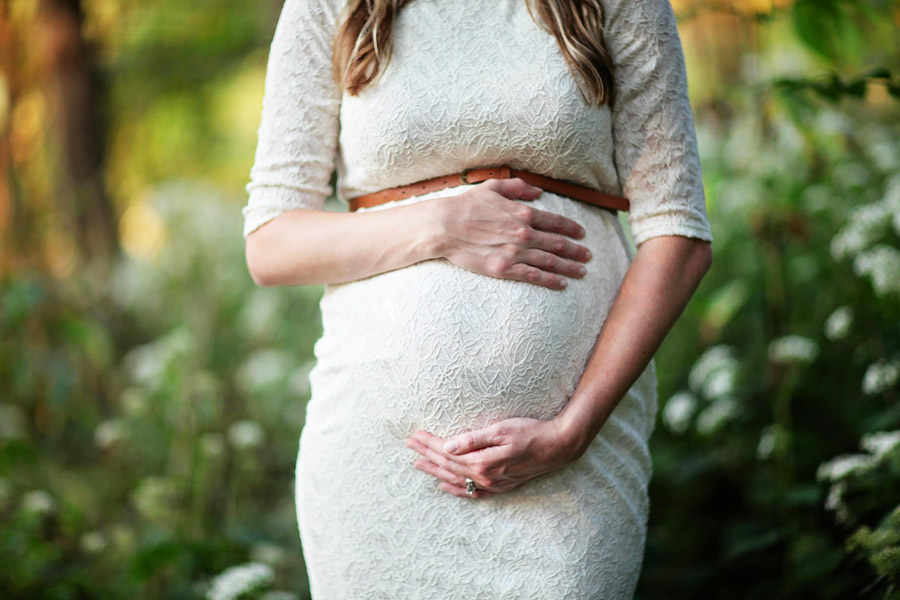Created on Monday, July 08, 2013 12:10 pm
In practice, when it comes to nutrition, expectant mothers are especially aware of what to omit, such as raw meat and alcohol. That she actually needs more of some nutrients, during pregnancy and breastfeeding, is not always known. This is unfortunate, because with proper nutritional advice and, where necessary, nutritional supplementation (the use of proper dietary supplements), there is much to be gained, both for mother and child. What’s important here is to pay attention to what you will be using. Therefore, be well informed in the interest of safety for yourself and your child. Much of the health of both the mother and child are determined by what the mother eats. So, healthy or unhealthy. The role of probiotics in preventing intestinal vaginal infections and urinary tract infections in the mother and lowering the risk of eczema in the child is also woefully understudied. Many of these problems can be prevented.
Unfortunately, it is still the case that most lactation consultants, doctors, maternity nurses and others involved in pregnancy are unaware or inadequately informed about the role of nutrition and supplementation in becoming pregnant, the pregnancy itself and the breastfeeding period.
Start early with proper nutrition Many problems can be prevented by starting with proper nutrition early on. As early as the moment you have a desire for pregnancy. This also applies to the male partner, by the way. Sperm quality and quantity can also increase with proper nutrition and possible supplementation with proper supplements. Eating well means not only having enough “filling” (lots of calories without substance so to speak) but also having the right micronutrients (vitamins, minerals and trace elements) and the right proportions and amounts of macronutrients such as proteins, fats and carbohydrates. Particularly in women, I often see protein deficiencies, as well as deficiencies of certain nutrients, in the diet that can cause all sorts of symptoms.
It takes quite a lot out of your body, pregnancy is like top sport for your body.
Pregnancy takes quite a toll on your body as a woman. The baby growing inside you uses an enormous amount of nutrients. After all, a whole new person is growing inside your body. All of your baby’s cells must be built by nutrients that come from your body. The construction of all parts of your baby requires many additional specific nutrients. Proteins (Amino Acids) are the building blocks of your body and therefore your baby’s as well. Many women already don’t eat enough protein normally and then automatically get proportionally even less during pregnancy. Calcium and other important minerals for building bones, vitamins (a familiar one to you is probably folic acid, part of the b vitamins for preventing spina bifida). Lots of essential fatty acids (nuts, seeds, fish oil, olive oil) for yourself and for your baby (formation of the brain, among other things). Magnesium is also one of the many minerals that women are deficient in. Normally already without being pregnant, but in pregnancy this is even more common.
Deficiencies of such substances cause a wide variety of symptoms. Often before pregnancy, but usually worse during pregnancy. Logical, because a new human being is growing inside you. That human depends on what you eat. Are you eating optimally and ensuring proper supplementation? Then there is nothing wrong. But if you are not 100% sure, it is still useful to get some good advice on this. It can ensure that you experience the period before, during and after pregnancy without any problems. Your baby will have a better start and will get the right substances through breastfeeding. Deficiencies of one or more nutrients cause symptoms in yourself. After all, your child goes before you! Your child-to-be does make sure he or she gets his or her turn first. It is so determined. Your baby is given priority in your body in terms of nutrients. This is the cause of often increasing symptoms during your pregnancy. It may also be the case that your body does not have enough proper nutrients even before pregnancy. Your baby may be prioritized, but if there is nothing left of certain nutrients there is still a serious problem. You will then build up further deficiencies yourself and your baby will also build up nutrient deficiencies. This can have negative consequences for both mother and child. Consider complaints in the mother and possible abnormalities in the baby.
But those ailments are part of it, right? That’s what you might say because lots of (expectant) mothers have these complaints, right? But unfortunately, or actually fortunately, many complaints can actually be prevented. Forgetfulness, calf cramps, muscle cramps, fluctuating moods, lower back pain, gaining too much weight, high blood pressure, gestational diabetes just to name a few complaints that are really unnecessary and only unnecessarily increase the risks during pregnancy. They are strong symptoms of severe deficiencies of vitamins, minerals, fatty acids and amino acids (proteins), among others. Not to mention serious issues such as abnormalities that may arise unnecessarily in the development of the baby. Logical. Compare it to building a house, for example. If the construction has to go on but there are insufficient materials then that does not improve the quality either. “Anomalies” arise.
After childbirth, recovery and breastfeeding You have given birth to a wonderful son or daughter. You are a proud mother but exhausted and your body needs to recover. Again, that needs many, many building blocks if it is to return to its former state. Your uterus needs to heal, you may need to heal some from underneath as well, you may have lost a lot of blood, you are probably going to breastfeed right away. Milk must be made while your body is exhausted. Nature takes care of all that. Unbelievable right? But help your body with this by feeding it well. Your baby depends on what you eat.
“If you eat healthy you don’t need anything extra.” Do I still hear way too much. And that’s crazy. After all, what is healthy eating? 2 ounces of vegetables and 2 pieces of fruit a day? If you eat according to the “disk of 5” are you getting enough? No unfortunately not. Take a look at what is already advised: Folic acid during your pregnancy. Vitamin D3 and K from your baby’s birth. Vitamin D3 for you during pregnancy and lactation. Unfortunately, those are only three vitamins that “mainstream care” recommends. This while much more is needed for your body. What I often hear is, “But I use a multivitamin for pregnancy!”. That’s nice but doesn’t say that much. After all, how is your basic diet structured? And often there are already complaints. It is then certainly advisable to seek proper advice so that you know how much, and what would be best to eat. Consider, for example, your lifestyle, occupation, current diet, medication use and possible health conditions.
In conclusion, I wish you a good pregnancy or if you have given birth, a wonderful maternity. If you have any further questions, please feel free to contact us.

